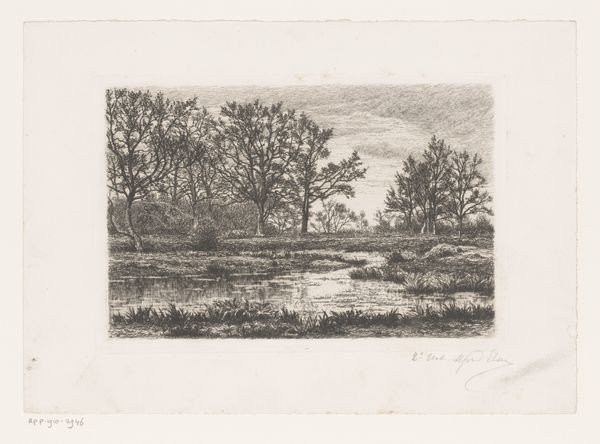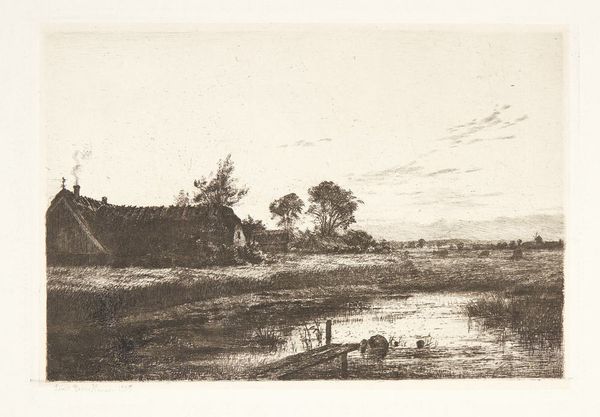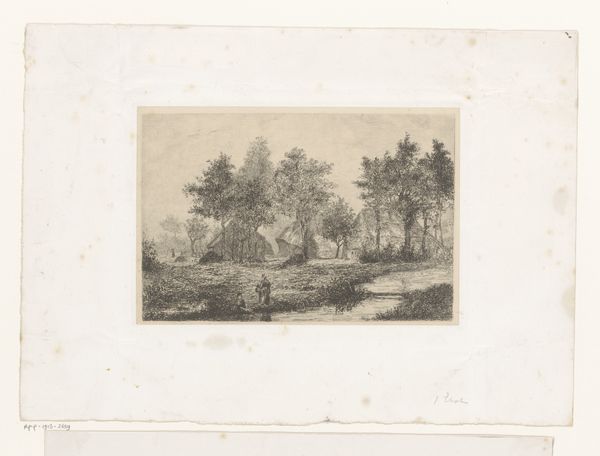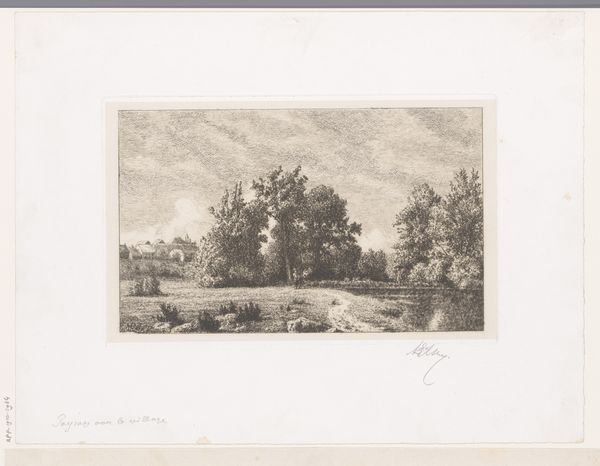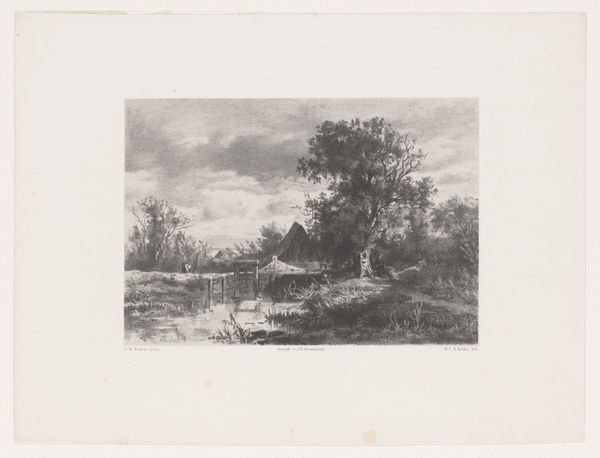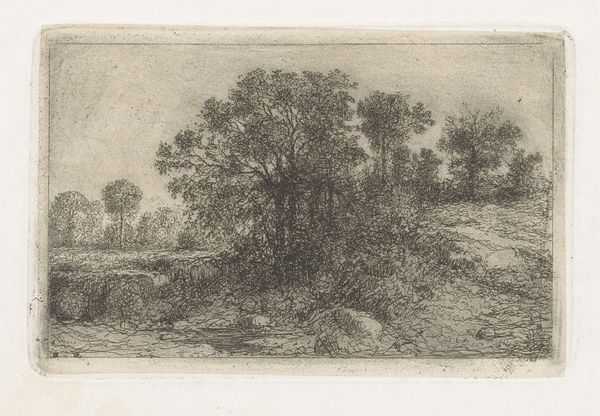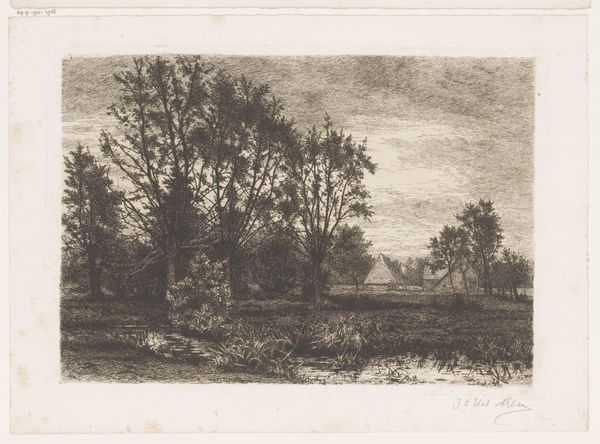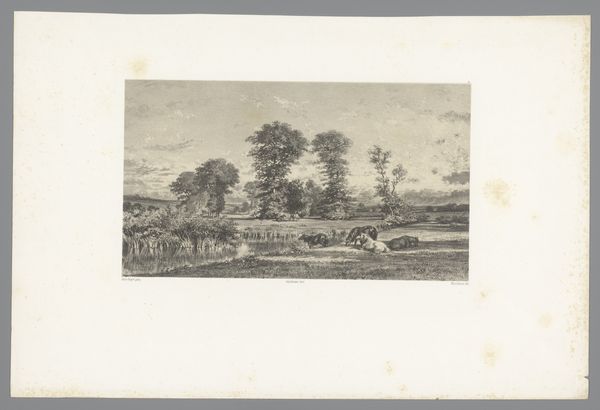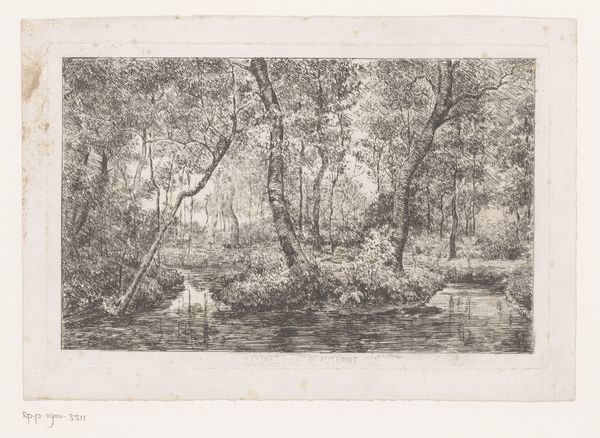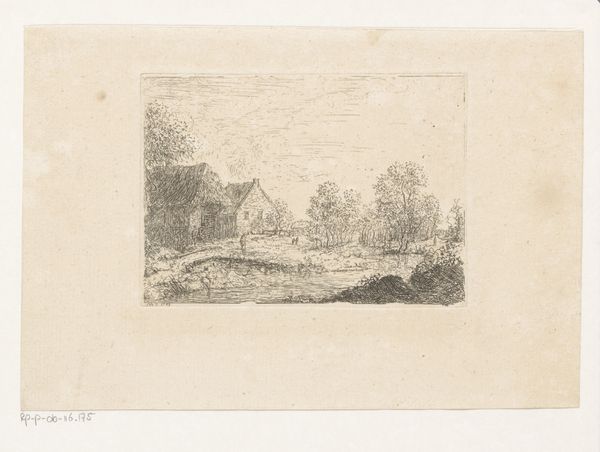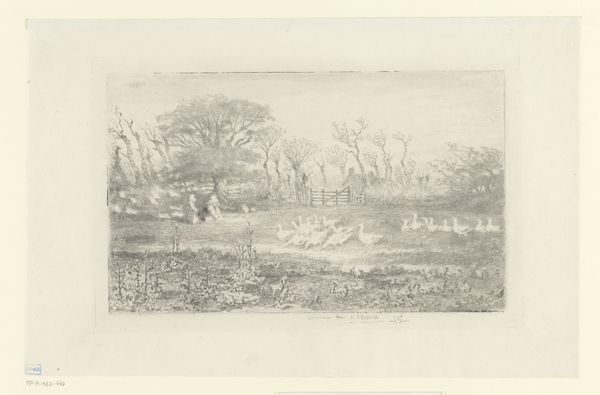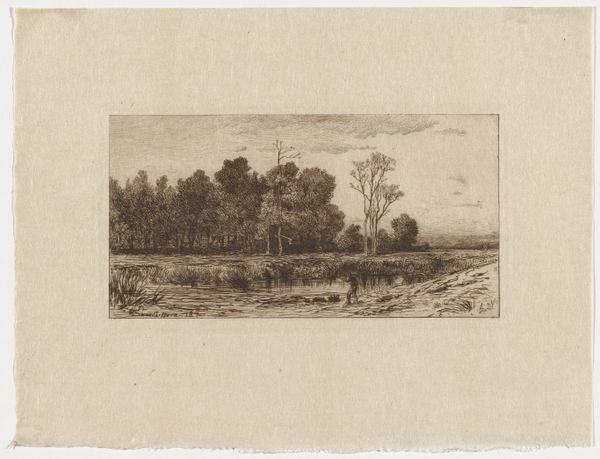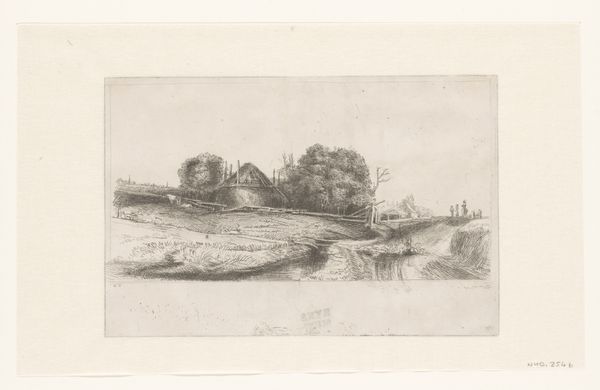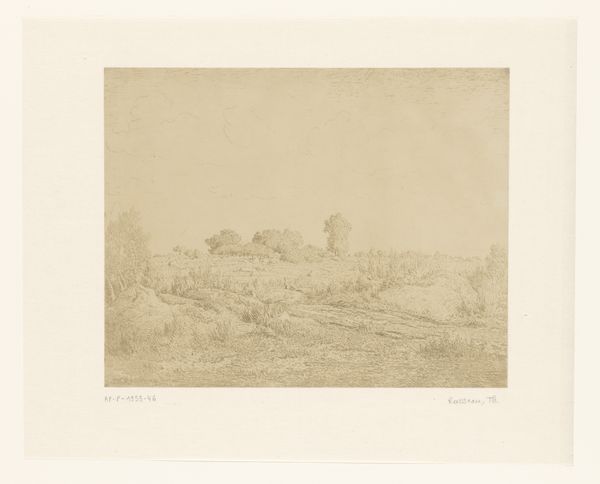
print, etching
# print
#
etching
#
landscape
#
genre-painting
#
realism
Dimensions: height 198 mm, width 349 mm
Copyright: Rijks Museum: Open Domain
Editor: Here we have "Farm by a Pond," an etching created sometime between 1852 and 1887 by Emilie Rolin-Jacquemijns. I'm struck by how still it feels. There's a quiet, almost melancholic mood about it. How do you interpret this work? Curator: I see this etching as a window into the 19th-century negotiation of the rural ideal and social realities. Consider the Realism movement Rolin-Jacquemijns aligned herself with: what was it reacting against? This image captures the serene facade of country life but remember it omits the backbreaking labor, economic precarity and social hierarchies inherent in that world. How does she treat these themes? Editor: So, it's a carefully constructed image, not necessarily a pure representation of reality? Curator: Exactly! Realism doesn't mean unvarnished truth. Instead, it signals a specific socio-political position. Rolin-Jacquemijns chose to depict a particular slice of life. The absence of people, the emphasis on the solitary farm and the surrounding landscape might speak to a yearning for a simpler, more independent existence—or perhaps, a critique of the isolation experienced by rural communities? Consider what power dynamics might be in play and how these are visually softened by her artistic choices. Editor: I never thought about Realism that way. I always assumed it was just about showing things as they were. Curator: That's the illusion! This artwork becomes a site where we can investigate gender roles, class structures, and the changing relationship between humanity and the land during that period. What ideological message do you think Rolin-Jacquemijns sends, and why? Editor: Looking at it again, the quietness almost feels like a suppression of something, or a focus on the idealized over lived experience. I will definitely not see Realism the same way now. Thanks for your insights! Curator: My pleasure. It's through these layered interpretations that we can truly appreciate the power of art to reflect and shape our understanding of the world.
Comments
No comments
Be the first to comment and join the conversation on the ultimate creative platform.
